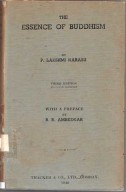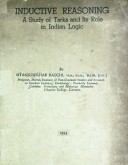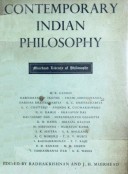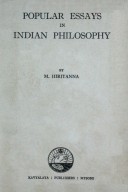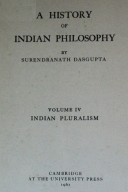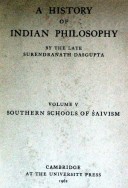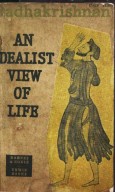Tìm Sách
Sách tiếng Anh-English >> The Essence of Buddhism
Thông tin tra cứu
- Tên sách : The Essence of Buddhism
- Tác giả : P. Lakshmi Narasu
- Dịch giả :
- Ngôn ngữ : Anh
- Số trang : 263
- Nhà xuất bản : Thacker & Co , Ltd , Bombay
- Năm xuất bản : 1948
- Phân loại : Sách tiếng Anh-English
- MCB : 12010000002977
- OPAC :
- Tóm tắt :
THE ESSENCE OF BUDDHISM
BY
P. LAKSHMI NARASU
Third edition
Revised &Enlarged
WITH A PREFACE
BY B. R. AMBEDKAR
THACKER & CO , LTD , BOMBAY
1948
PREFACE
“This volume is the final form assumed by a series of essays on Buddhist subject originally contributed to certain South Indian Magazines. It has been prepared with the aim of bringing together, within a small compass, the leading ideas of Buddhism, and interpreting them in the light of modern knowledge. It lay no claim to originality Much of the material it contains may be found in the works of well-known orientalists. Nor does it pretend to be the fruit of Pali or Sanskrit scholarship, despite the quotations it may contain from works in those languages. It professes to be nothing more than the humble offering of a disciple in the service of his Master.
“In presenting the teachings of his master it is incumbent on the disciple never to lose sight of the fundamental principles on which those teachings themselves rest. For the Buddha the voice of authority is in truth itself, and wherever the truth leads thither the disciple must follow. Accordingly, the dictum accepted in all schools of the Buddhism as the sole regulative principle is that nothing can be the teaching of the Master, which is not in strict accord with reason, or with what is known to be true. In giving a conspectus of their religion all Buddhist writers of note have sought the aid of logic and psychology. Their regard for general validity of ideas has been so great that they have not infrequently set aside the sutras, which are commonly regard as the basis of their religion. Hence, in expounding Buddhism in the light of modern knowledge, the author has in no way swerved from his position as a Buddhists from the very earliest times. If he has succeeded in giving Buddhism the aspect of modernity, he has done so, not by seasoning modern ideas with a little Buddhistic sauce, but by getting beneath all forms of Buddhism and bringing to light the essential truths therein contained.
CONTENTS
CHAPTER I
THE HISTORIC BUDDHA
What Buddhism is – Sãkyamuni not a supernatural founder of Buddhism – Incidents in Sãkyamuni’s life non essential – Value of Buddha’s personality – Birth of Buddha – His early life and renunciation – Training under Arada and Udraka – Severse ascetic penance – The incident with the herdsman’s daughter – Attainment of enlightenment – His determination to preach – Starting for Benares and meeting with Upaka – Stay at Benares and information of the holy brotherhood – Visit toRajagriha and conversation of Bimbisãra – Conversion of Sariputra, Maudgalyãna, and Mahã Kãsyapa – Other disciples – In effectual plots of Devadatta – Patrons and benefactors of Buddha – State of India then – Calumnies against Buddha and how they were exposed – Daily life of the Blessed One – His method of Exposition – His last tour and end – Disposal of the remains of the Blessed One – Historicity of Sãkyamuni – His position among founders of religions – His claims to greatness.
CHAPTET II
THE RATIONALITY OF BUDDHISM
A system of philosophy and practical ethics – Reason the ultimate criterion of truth – Futility of Authority and revelation – Irrationality of all beliefs – Cultivation of faith – Schools and sects of Buddhism – Only one way, that of reason – Reverence to relies and image an act of devotion – Adaptation to pre-existence religions – Invocation of Amida by the Japanese Buddhist – The tricaranas – No transcendental superiority in Buddha – Attitude towards miracles and wonders – Freedom from fanaticism and persecution – The missionary impulse in Buddhism – Spread of Buddhism – Spirit of generality and compassion – Influence on the development of arts – Development of science of knowledge – Civilizing influence of Buddhism – Buddhism and pessimism. Reason and purity of heart the gist of Buddhism.
CHAPTET III
THE MORALITY OF BUDDHISM
The goal of Buddhism – The ten transgression and ten precepts – The precepts against the destruction of life – Sacrifices in ancient India – Care for animals – Partiality for vegetarian diet – mixed diet the best food – Extreme observance of the precept – Attitude towards war – Attitude towards suicide – Spirit of tolerance a result of the observance of the precept. – The precept against theft – Motives for such abstinence – Socialistic spirit of Buddhism – The precept against adultery – Sexual excesses denounced by religions – Attitude towards legitimate intercourse – The precept against falsehood – Lying one of the gravest offences – Hypocrisies fostered by churches – Lying under necessity – The precept against drink – Prevalence of drink in Ancient India – Buddhism first to enjoin total abstinence – Nature and effect of alcohol – The sex ruinous things, and drink one of them – The precept against vain talk – The precept against evil reports – The precept against selfishness – Jealousy an intense form of selfishness – The precept against evil passions – The demands of justice and equity – Love should be healthy and wise – Duty of practising universal love – Anecdote showing the practice of love – The true import of the Jãtakas – Claims of Christianity to be the only religion of love – The precept against ignorance and doubt – Skepticism a means of knowing the true – The roots of Buddhism – Differences between the ethical teachings of Buddhism and Brahmanism – Ethics of Buddhism not egoistic – Its ethical system a study of consequences of Karma and Vipãka – Purely autonomous –Moral ideas have nothing to do with supernatural beings – The Eternal self is not of any ethical value – Morality in the Vedanta and in Buddhism – Basis of morality purely subjective – Buddhism teaches that the good of humanity is the good of individual – Deliverance from sorrow by following good – Morality rests on egoism and altruism is applied egoism – The ideal of the future perfection of mankind.
CHAPTER IV
BUDDISHM AND CASTE
University of salvation – The story of Buddha’s beloved disciple and the girl of the Mãtanga caste – The Brahman a specially Indian phenomenon – No support for the existence of specific difference in men – Difference only through occupation and conduct – No difference in Dharma between one caste and another – No caste for those joining the Sangha – Social conditions then prevailing uncertain – Only the social significance of caste, if any, recognized in Buddhism – The development of caste due to ambition and selfishness – The attitude of later Buddhists – Arguments of the Vajrasuchi: Brahmanhood not constituted by life principle or descent or body or learning or origin from Brahma – Attempts by Brahmans to bolster up their religion, the Gita one of such attempts – Caste the mainstays of Hinduism – Ethnological basis of caste a pure myth – Failure of attempts to classify mankind – Purity of blood mythical – Heredity has nothing to do with ethical culture – Unwarranted supposition of the possibility of development for superior peoples only – Caste quite noxious, and therefore disregarded by Buddhism.
CHAPTER V
WOMAN IN BUDDHISM
Examples of the high status of women in Buddhism – Low estimation of women in India – Buddhism revolt against this a success – Strict rules for the relations between the sexes – Theoretical equality – Treatment of women fair – Example of Burmese women – marriage ceremony among Buddhists very simple – A religion of free individuals – That the teaching is destructive of family life is not true.
CHAPTER VI
THE FOUR GREAT TRUTHS
The Four Truths: existence of misery, its cause, emancipation from misery, and means of emancipation – These truths not dogmas – Existence of misery: Schopenhauer’s description there of Religion arises from the instinct of self-preservation – Attempts at a perfect life: Buddha’s attitude – World process not all perfected – Evolution in all forms of life – Final stage of self-conscious growth to co-extensiveness with all life.
CHAPTER VII
BUDDHISM AND ASCETICISM
Religion of ancient India sacrificial – Rise in power of the Brahmans who knew the sacrificial arts – Human sacrifice the greatest – Strong belief in self-mortification, illustrated by Brahmanism and Jainism – Gautama’s trial of self-mortification and his discovery of its fruitlessness – Sermon in the Deer Park at Benares – Asceticis and luxury equally spurned by the Dharma – Wealth rarely procures case of body and mind – Perfect freedom and sanity of life, the attainment of bodhi – The charge of indolence against the Bhikkhus false – In valuable services by the Bhikkhus – Their work in Japan – Wrong allegation of failure to inculcate patriotism – Political teaching illustrated by the government of Asoka – Democratic basis of the Sangha – utter eradication of egoism and the ideal.
CHAPTER VIII
BUDDHISM AND PESSIMISM
Buddhism not pessimistic – Inward discord of Schopenhauer contrasted with the inward harmonies of Buddhism – Existence of suffering recognised, but a nobler life opened out – Life is not condemned, but peace must be striven for – Resignation and means of attaining happiness taught – Buddhism not a religion of despair – Duty of furthering evolution with a view to attain perfection.
CHAPTER IX
THE NOBLE EIGHTFOLD PATH
The middle path, the noble path – Morality of Buddhism represented by the eightfold path – Eight essentials specified – Right belief necessary for right action – Animistic and metaphysical beliefs the sources of religious error – Right action, thought and peace safeguarded by reason and science – attainment of Bodhi directed by right views – Value of actual practice – Purification of one’s act – Observance of moral precepts the practice of morality – Nature of charity – Aim in acts of charity – Rights living the outcome of right action – Means of subjective purification – Practice of self-control – Nature of the will, not a faculty determined by it self –Requisites of a rightly directed will – Attainment of the freedom of bodhi – Training of the will – Practice of right thought – Intellectual enlightenment essential to salvation – Practice of Dhyana for tranquility – Dhyana, not losing consciousness – Dhyana and Yoga contrasted – Dhyana must be coupled with pragna – The ten impediments; permanent self and skepticism two of them – Efficacy of ceremonies and rites the third – The remaining seven impediments – Elaboration of the Astãngamãrga into the Dacabhumi – Falsity of the accusation against the greater importance in Buddhism of intellectual powers then ethical virtues
CHAPTER X
THE RIDDLE OF THE WORLD
Everything in a state of flux – Cause and effect – Causal nexus – no first cause – Idea of Isvara by rational argument – Natural laws only descriptive – Argument of purpose fallacious – No connection between morality and Isvara – Morality an outcome of social limitations – General belief in Isvara not a proof of his existence – Historical proofs fallacious – Pragmation and belief in Isvara- Existence not a manifestation of the absolute
The absolute in Hindu systems of thought – The nature of concepts, higher and lower concepts – Method to reach the transcendental, three classes thereof – Nature of ecstatic intuition, no proof of a subliminal self – Examination of the claim of ecstasy to be unquestioned – Universe not a product of the individual self – Idealistic position examined – Exact position of the Blessed One, a consistent phenomenalism – One’s experience are given him only as a content of one’s consciousness memory.- Nothing external or internal as contents of consciousness – The practical origin of the distinction between “I” and “external world”
CHAPTER XI
PERSONALITY
Various views of human personality – Belief in a permanent self or soul most pernicious – Wrong conception of the unity of compound things, the origin of the false belief – Existence of an atman categorically denied by Buddhism; permanence of personality apparent, not real – No psychological basis for the brain to a piano criticised – Mutual conditioning of the ego and not-ego – The ego not an eternal immutable entity – Criticism of the theory of spontaneity – The freedom of the will examined – Division of the contents of consciousness into two classes, the origin of transcendental entities – Human personality a compound of body and mind – Dissolution of individuality the source of happiness – Dinial of a separate self liberates the individual from error.
CHAPTER XII
DEATH AND AFTER
Man a complex of skandhas – Life a union of the skandhas, their dissolution death – Consciousness not separate from the organism, proved by psychology – Existence of extra-human spirit agencies not establish by the researches of the Psychical Research Society – No evidence of the continuance of the conscious person afforded by science – Individual existence a complex of harmas which, after death, are re-born in others – Transmigration of an actual entity from one birth to another not admitted by Buddha, but the content of the ego id preserved in others – Evolution of the organized animal from its ancestral series – Psychical interdependence of human beings, and continuance of psychic life after the individual – Immortality of humanity – Our lives incorporated and continued in a collective eternity of humanity – Person as well as society, the living embodiment of past physical and psychical activities – Criticism of the Buddhist school believing in a mystery underlying the transmigration of karma – Self, immanent and not transcendent – The Buddhist doctrine of karma extends over the whole of phenomenal existence – The difference between this doctrine and the Brahmanic theory of transmigration – Perfectibility by self-culture and self-control, hence Buddhism not fatalistic – Dissolution of body and mind, but continuance of life in deeds.
CHAPTER XIII
THE SUMMUM BONUM
Three corner-stones of Buddhism – Anityã, a perpetual flux – Anitya not necessarily illusory (mithya) – Anãtmata, the non-existence of an absolute, transcendent entity – The ego, not unchangeable, but alterable and improvable – Unity of consciousness not explained by the unity of an underlying atman – Renouncement of the atman, rids sorrow – Nirvana not an absorption in the universal soul – Not also an annihilation of all activities – Negative aspect of Nirvana, the extinction of lust, hatred, and ignorance – Nirvana, not the annihilation of personality, but complete attainment of perfect love and righteousness – The law of Karma is binding even after the Attainment of Nirvana, ideals of Arahat and Jivanmukta compared – Peace, consolation, and hope attained in Buddhism – The true nature of Dharmakaya – Its University – The origin of sorrow, anxiety and despair – The path of liberation – Freedom from suffering through the light of Dharmakaya – the all-embracing life of one who has attained Nirvana – The beatitude of Nirvana.
 Facebook
Facebook
 Google
Google
 Google+
Google+
